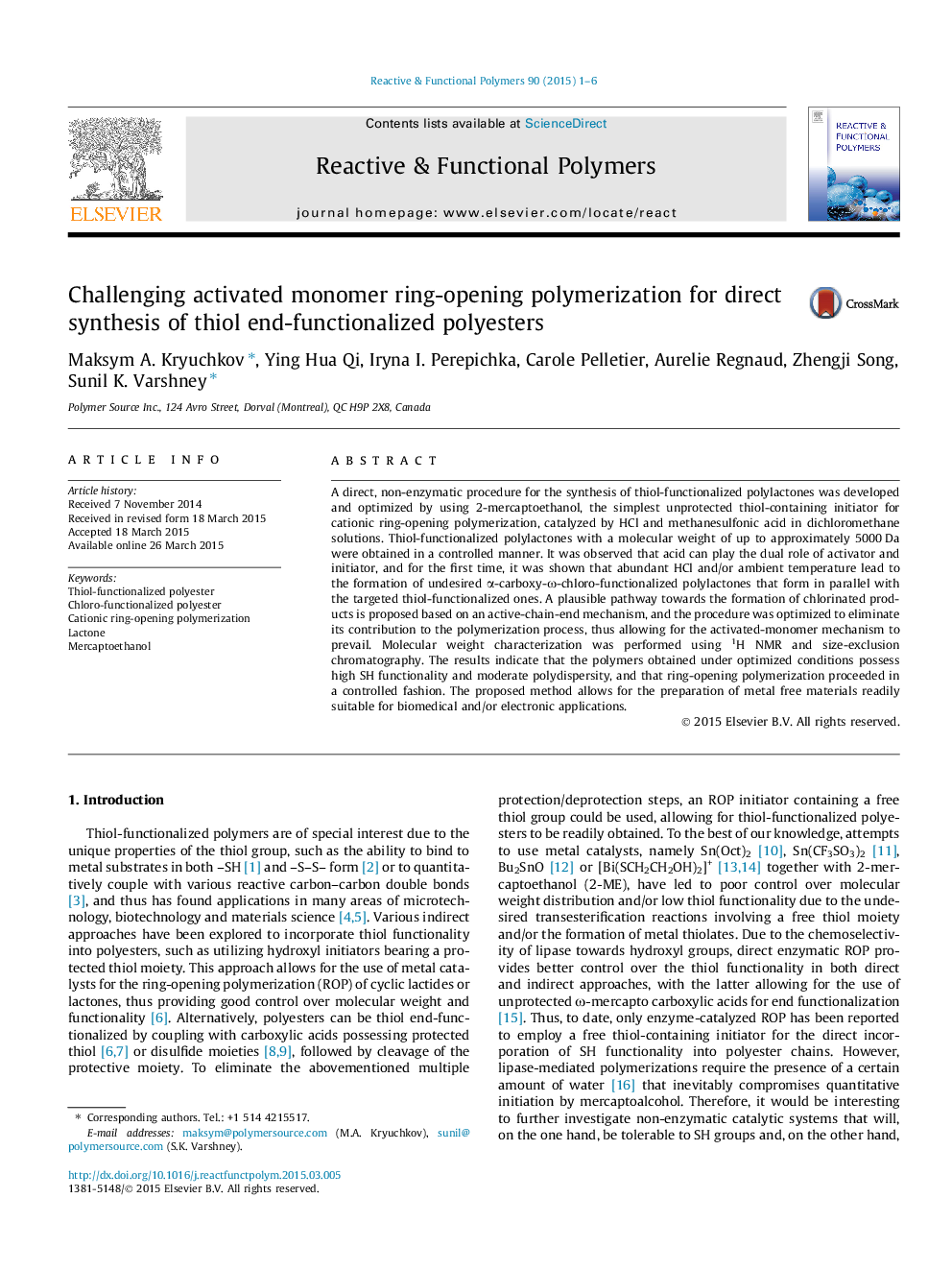| Article ID | Journal | Published Year | Pages | File Type |
|---|---|---|---|---|
| 5209717 | Reactive and Functional Polymers | 2015 | 6 Pages |
Abstract
A direct, non-enzymatic procedure for the synthesis of thiol-functionalized polylactones was developed and optimized by using 2-mercaptoethanol, the simplest unprotected thiol-containing initiator for cationic ring-opening polymerization, catalyzed by HCl and methanesulfonic acid in dichloromethane solutions. Thiol-functionalized polylactones with a molecular weight of up to approximately 5000 Da were obtained in a controlled manner. It was observed that acid can play the dual role of activator and initiator, and for the first time, it was shown that abundant HCl and/or ambient temperature lead to the formation of undesired α-carboxy-Ï-chloro-functionalized polylactones that form in parallel with the targeted thiol-functionalized ones. A plausible pathway towards the formation of chlorinated products is proposed based on an active-chain-end mechanism, and the procedure was optimized to eliminate its contribution to the polymerization process, thus allowing for the activated-monomer mechanism to prevail. Molecular weight characterization was performed using 1H NMR and size-exclusion chromatography. The results indicate that the polymers obtained under optimized conditions possess high SH functionality and moderate polydispersity, and that ring-opening polymerization proceeded in a controlled fashion. The proposed method allows for the preparation of metal free materials readily suitable for biomedical and/or electronic applications.
Related Topics
Physical Sciences and Engineering
Chemistry
Organic Chemistry
Authors
Maksym A. Kryuchkov, Ying Hua Qi, Iryna I. Perepichka, Carole Pelletier, Aurelie Regnaud, Zhengji Song, Sunil K. Varshney,
